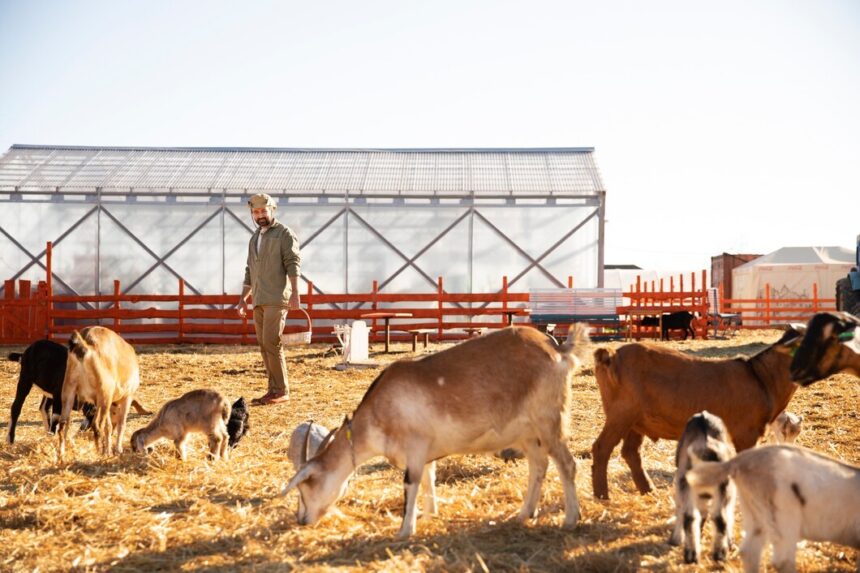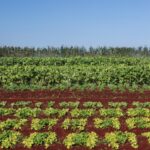As the demand for sustainable agriculture increases, developing eco-friendly livestock farms has become essential for promoting environmental health and ensuring long-term agricultural viability. South Africa, with its diverse climates and ecosystems, offers unique opportunities for sustainable livestock farming. Here are ten effective strategies to create eco-friendly livestock farms in South Africa.
1. Implement Rotational Grazing
Rotational grazing involves moving livestock between pastures to prevent overgrazing and allow vegetation to recover. This practice improves soil health, enhances biodiversity, and reduces erosion. By rotating grazing areas, farmers can maximize forage use while promoting the growth of native plants, which support local ecosystems.
2. Utilize Native Breeds
Choosing native livestock breeds that are well-adapted to local climates and conditions can enhance sustainability. Native breeds often require fewer resources, are more resilient to diseases, and are better suited for the specific environmental challenges faced in South Africa. Utilizing these breeds can help reduce feed costs and environmental impact.
3. Integrate Agroforestry Practices
Incorporating trees and shrubs into livestock farming systems, known as agroforestry, can enhance biodiversity, improve soil quality, and provide shade for animals. Agroforestry systems can also help sequester carbon, improve water retention, and create habitats for wildlife, contributing to a more balanced ecosystem.
4. Optimize Feed Efficiency
Utilizing high-quality, locally sourced feed can reduce the carbon footprint associated with livestock production. Implementing strategies such as precision feeding, which tailors rations to meet the specific nutritional needs of animals, can enhance feed efficiency, minimize waste, and lower greenhouse gas emissions.
5. Reduce Waste Through Composting
Proper waste management is essential for eco-friendly livestock farms. Composting manure can reduce odors, prevent water pollution, and provide nutrient-rich fertilizer for crops. By recycling waste into valuable compost, farmers can improve soil fertility while minimizing environmental impact.
6. Implement Water Conservation Techniques
Water management is critical in sustainable livestock farming. Techniques such as rainwater harvesting, installing water-efficient troughs, and using drip irrigation for pastures can conserve water resources. Ensuring that livestock have access to clean water without causing erosion or degradation of water sources is vital for maintaining ecosystem health.
7. Adopt Integrated Pest Management (IPM)
Integrated Pest Management (IPM) combines biological, cultural, and chemical practices to manage pests sustainably. By using natural predators, crop rotation, and resistant livestock breeds, farmers can reduce reliance on chemical pesticides. This approach minimizes chemical runoff, protects biodiversity, and promotes a healthier farming environment.
8. Enhance Soil Health
Healthy soils are the foundation of sustainable farming. Practices such as cover cropping, reduced tillage, and organic amendments can improve soil structure, increase organic matter, and enhance microbial activity. Healthier soils contribute to better forage production and animal health while reducing the need for synthetic fertilizers.
9. Engage in Community-Based Farming
Community-based farming encourages collaboration among local farmers to share resources, knowledge, and best practices. This approach can lead to the establishment of cooperative markets, bulk purchasing of inputs, and collective action against environmental challenges. By working together, farmers can enhance sustainability efforts and improve economic resilience.
10. Educate and Train Farmers
Continuous education and training are crucial for promoting eco-friendly practices in livestock farming. Providing workshops, resources, and support to farmers can foster a culture of sustainability. Sharing success stories and innovative practices can inspire others to adopt environmentally friendly methods, creating a ripple effect throughout the farming community.
Developing eco-friendly livestock farms in South Africa is not only essential for environmental sustainability but also enhances the long-term viability of agricultural operations. By implementing these ten strategies, farmers can create productive, resilient systems that benefit both the environment and their livelihoods. Embracing sustainable practices will help ensure that future generations can continue to enjoy the diverse and rich agricultural heritage of South Africa.
Join 'Farmers Mag' WhatsApp Channel
Get the latest Farming news and tips delivered straight to your WhatsApp
CLICK HERE TO JOIN






